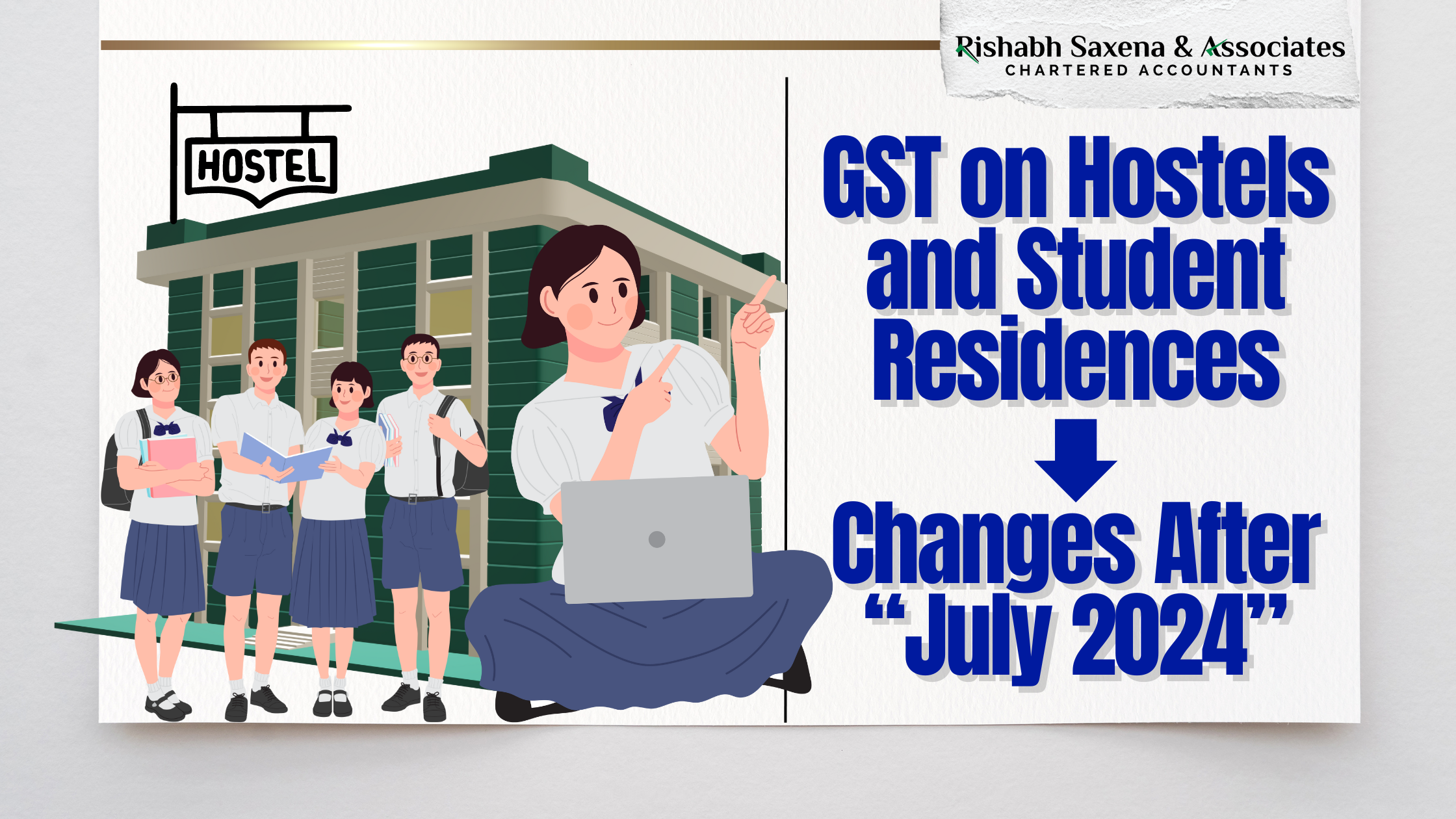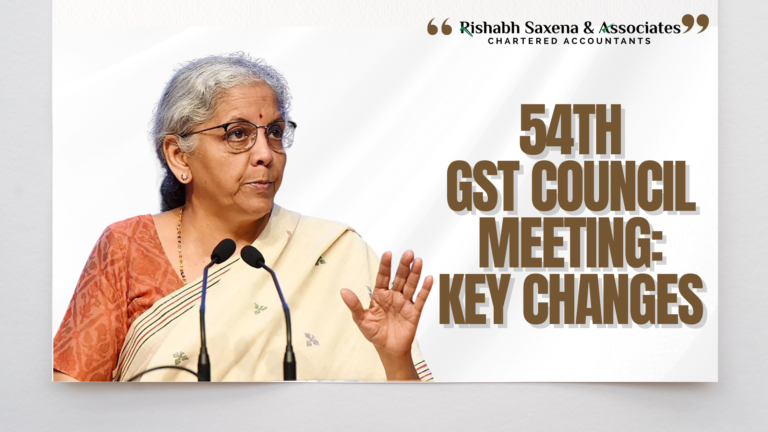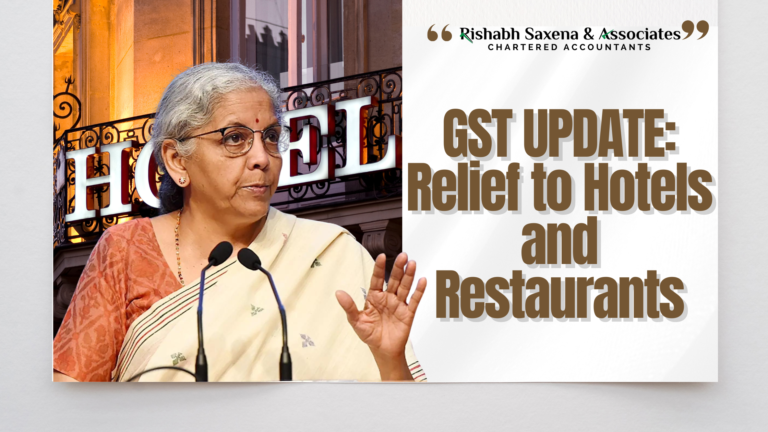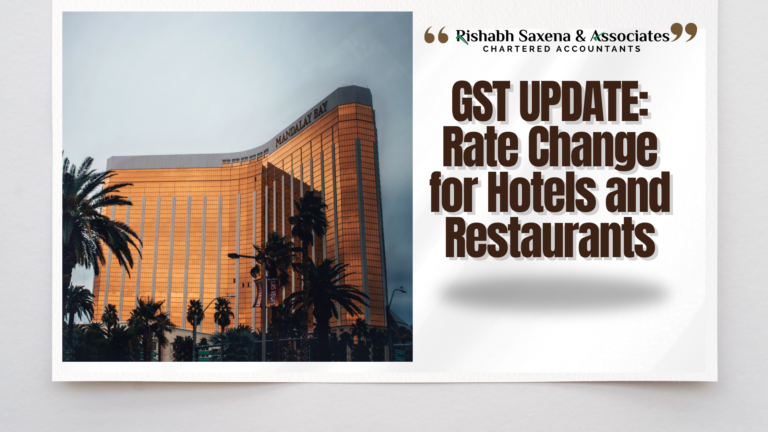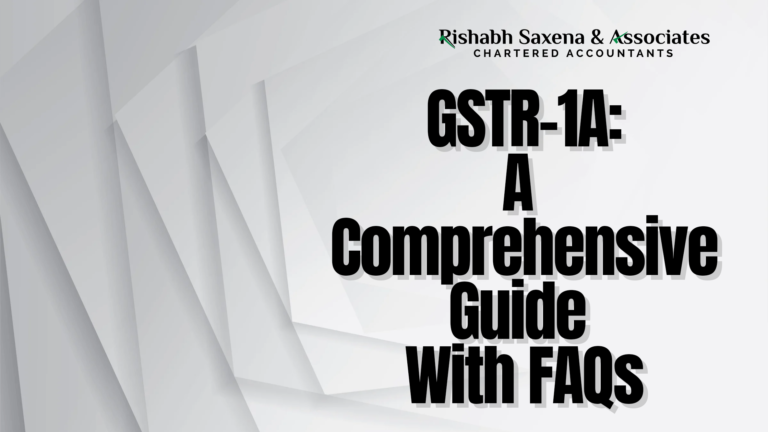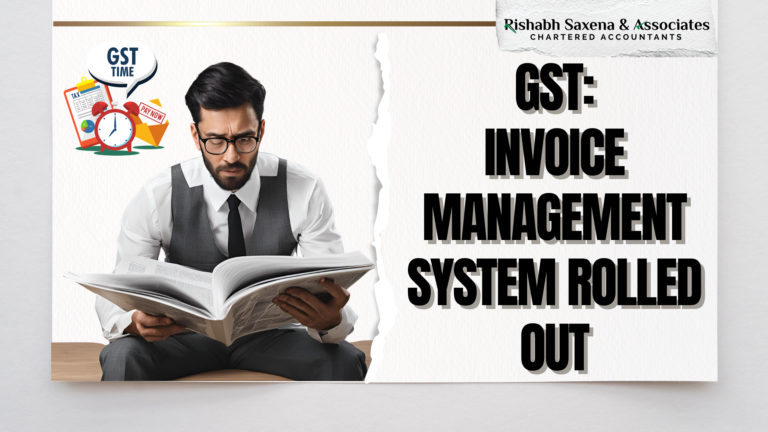GST on Hostels and Student Residences: What has Changed post July 2024?

Background
Hostels and paying guest accommodations (PGs) provide essential living facilities to millions across India, mainly students from smaller cities or migrant workers. This sector, largely unorganized and dominated by small players, offers affordable housing solutions. Under the GST regime, from July 1, 2017, to July 17, 2022, residential dwellings for use as residences were exempt from GST. Hostels and PGs charging less than or equal to ₹1,000 per day per unit were also exempt, aimed at providing cheaper housing, particularly for the poorer sections of society.
Historical Context: GST Exemptions (2017-2022)
From July 1, 2017, to July 17, 2022, the GST regime exempted residential dwellings used as residences from GST. Hostels and PGs charging less than or equal to Rs. 1000 per day per unit of accommodation were also exempt. This was intended to keep housing costs low for poorer sections of society.
Recent Amendments: Post-53rd GST Council Meeting (July 2024)
Following the 53rd GST Council meeting and Budget 2024, new exemptions were introduced, significantly impacting hostels and PG accommodations:
- Entry 12AA in Notification 12/2017-CT(R) (effective July 15, 2024):
- Accommodation services valued at Rs. 20,000 or less per person per month.
- The accommodation must be supplied for a continuous period of at least 90 days.
- Amendments to Entry 12:
- Services by way of renting a residential dwelling for use as a residence, except where the residential dwelling is rented to a registered person.
- Clarified that accommodation services for students and those provided by hostels, camps, PG accommodations, etc., are not covered under this exemption.
Impact at a Glance:
To illustrate the impact of these changes, the below table will help to understand the pre & post changes impact at a glance:
| Scenario | Pre-July 15, 2024 | Post-July 15, 2024 |
|---|---|---|
| Student Accommodation | Exempt if the value did not exceed Rs. 1000 per day. | Exempt if monthly charge ≤ Rs. 20,000 and stay > 90 days. If total value (including amenities) exceeds Rs. 20,000, GST applies or if the stay falls below 90 days, GST applies. |
| Corporate Leasing for Employees | Exempt if considered for residential use. | Not exempt; company must pay 18% GST under reverse charge. |
| Short-Term Hostel Stay | Exempt if daily rate ≤ Rs. 1000. | 12% GST on stays < 90 days. |
Regularization and Refunds: Circular 228/22/2024-GST
Circular 228 provides that accommodations valued at Rs. 20,000 or less per person per month and provided for at least 90 days will be regularized for the period from July 1, 2017, to July 14, 2024. However, it creates a disparity as:
- No Refunds for Past Taxes Paid: Service providers who paid taxes despite being eligible for exemption are not eligible for refunds.
- Relief for Non-Payers: Those who did not pay taxes in the past are now given relief, creating inequality.
Future Implications
The recent GST amendments have several significant implications for the future of hostels and PG accommodations:
- Compliance and Documentation: Service providers must maintain meticulous records to demonstrate compliance with the conditions for GST exemption. This includes documenting the duration of stay and ensuring that the monthly charges do not exceed Rs. 20,000 per person.
- Pricing Strategies: PG and hostel owners may need to adjust their pricing strategies to fit within the exemption threshold. This could involve restructuring service packages to separate accommodation charges from additional services like food, internet, and laundry.
- GST Registration:
- Service providers exclusively offering exempt supplies under Entry 12AA are not required to register for GST. This can simplify compliance and reduce administrative burdens.
- However, those offering mixed supplies (both exempt and taxable) must evaluate their GST registration requirements and comply accordingly.
- Impact on Students and Professionals: The continuation of exemptions for accommodations under Rs. 20,000 per month for stays exceeding 90 days aims to keep housing affordable for students and low-income professionals. This ensures that the primary beneficiaries of these exemptions—students and migrant workers—continue to receive financial relief.
- Landlord-Provider Relationships: PG and hostel owners who rent premises from landlords must consider the reverse charge mechanism (RCM). If the landlord is registered under GST, the responsibility to pay GST under RCM falls on the registered PG or hostel provider. Proper agreements and understanding between landlords and service providers will be crucial to manage GST liabilities effectively.
- Future Business Models: The amendments encourage PGs and hostels to adopt business models that cater to long-term stays, thus qualifying for exemptions. This might lead to more stability in the hostel sector, with an emphasis on long-term residential services over short-term, transient accommodations.
Conclusion
The government’s intent is to provide affordable housing while maintaining GST compliance. However, the amendments introduce complexities that hostel and PG owners must navigate carefully. Understanding these changes and their practical implications will help ensure compliance and optimize tax benefits.
The hostel and PG sectors must adapt to these new regulations by reviewing their pricing strategies, maintaining accurate documentation, and ensuring they meet the criteria for exemptions. By doing so, they can continue to provide affordable housing solutions while remaining compliant with GST laws.

